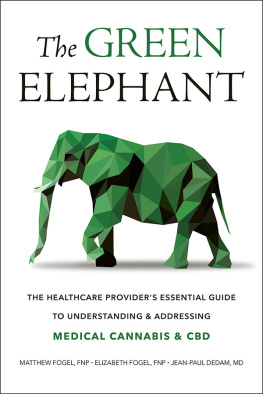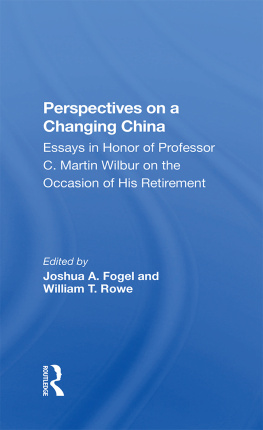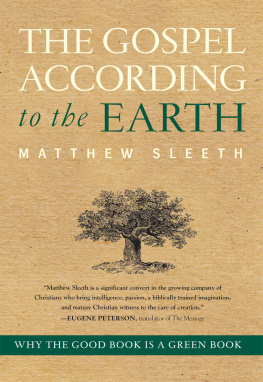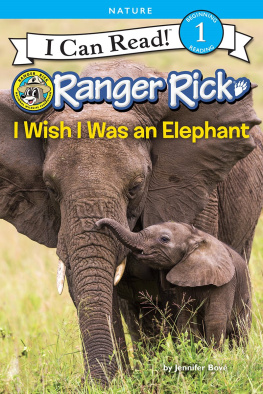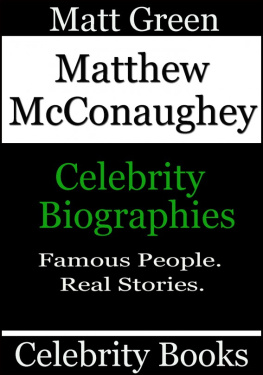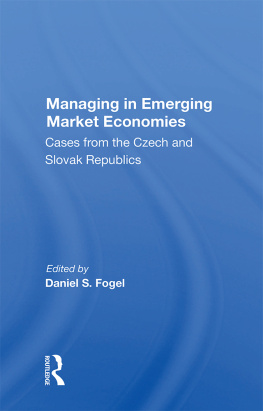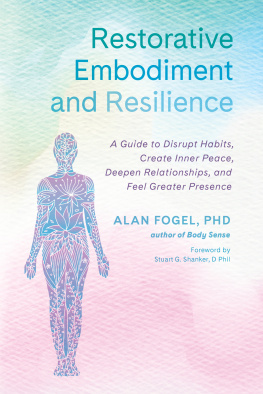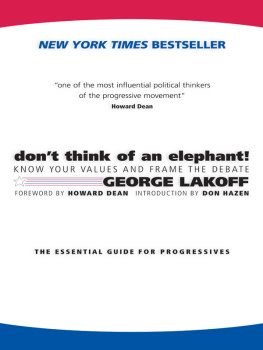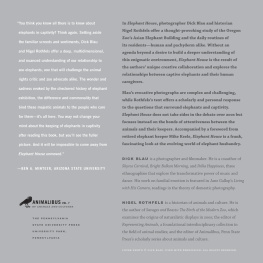Matthew Fogel - The Green Elephant
Here you can read online Matthew Fogel - The Green Elephant full text of the book (entire story) in english for free. Download pdf and epub, get meaning, cover and reviews about this ebook. year: 2020, publisher: Hatherleigh Press, genre: Religion. Description of the work, (preface) as well as reviews are available. Best literature library LitArk.com created for fans of good reading and offers a wide selection of genres:
Romance novel
Science fiction
Adventure
Detective
Science
History
Home and family
Prose
Art
Politics
Computer
Non-fiction
Religion
Business
Children
Humor
Choose a favorite category and find really read worthwhile books. Enjoy immersion in the world of imagination, feel the emotions of the characters or learn something new for yourself, make an fascinating discovery.
- Book:The Green Elephant
- Author:
- Publisher:Hatherleigh Press
- Genre:
- Year:2020
- Rating:3 / 5
- Favourites:Add to favourites
- Your mark:
- 60
- 1
- 2
- 3
- 4
- 5
The Green Elephant: summary, description and annotation
We offer to read an annotation, description, summary or preface (depends on what the author of the book "The Green Elephant" wrote himself). If you haven't found the necessary information about the book — write in the comments, we will try to find it.
The Green Elephant — read online for free the complete book (whole text) full work
Below is the text of the book, divided by pages. System saving the place of the last page read, allows you to conveniently read the book "The Green Elephant" online for free, without having to search again every time where you left off. Put a bookmark, and you can go to the page where you finished reading at any time.
Font size:
Interval:
Bookmark:

TO UNDERSTANDING & ADDRESSING
MEDICAL CANNABIS & CBD
ELIZABETH FOGEL, FNP
JEAN-PAUL DEDAM, MD


Hatherleigh Press is committed to preserving and protecting the natural resources of the earth. Environmentally responsible and sustainable practices are embraced within the company's mission statement.
Visit us at www.hatherleighpress.com and register online for free offers, discounts, special events, and more.
The Green Elephant
Text Copyright 2020 Matthew Fogel, Elizabeth Fogel & Jean-Paul Dedam
Library of Congress Cataloging-in-Publication Data is available.
ISBN: 978-1-57826-874-0
All rights reserved. No part of this book may be reproduced, stored in a retrieval system, or transmitted, in any form or by any means, electronic or otherwise, without written permission from the publisher.
Printed in the United States
10 9 8 7 6 5 4 3 2 1
Limit of Liability/Disclaimer of Warranty
The intention of this book is to inform, as well as complement a person's current treatment plan. The authors recognize a qualified physician or health care professional should be consulted regarding specific complaints. The authors do not recommend self-diagnosis or treatment. The publisher and authors specifically disclaim any and all liability occurring directly or indirectly from the application of any information contained in this book.
I t can be quite intimidating for a medical practitioner to approach the area of cannabis. The information availableand the feelings surrounding itseems to differ from person to person, even in the medical community, with some providers championing cannabis use and others demonizing it. But as with any new challenge in medicine, every promising therapy must be exploredand cannabis is no exception.
One of the key problems frustrating the debate around cannabis is that, up to this point, the discussion has been purely academic. Yet any provider who has practiced on their own knows that there is an enormous difference between book practice and clinical practice. Book practice is the perfect world scenario, and is what makes providers believe that every patient who presents with X disease will present in exactly the same manner and needs to be treated the same way. In the real world, we know this to be far from the truth, with no two patients presenting exactly alike. In the same way, no two patients will respond to a given therapy in exactly the same manner.
In debating whether we as medical practitioners should or shouldnt use cannabis as a therapy, we have failed to appreciate that our patients live in the real world. They have already heard of the potential benefits of cannabis therapy from friends and neighbors, by looking online, and even in national news. Regardless of where any provider lands on the topic, they have a responsibility to consider that, given the current national shift in opinions about cannabis, their patients are going to try cannabis. Given this fact, it is our professional obligation to educate ourselves that we might better assist them in using cannabis in the safest manner possible, to help them with harm reduction.
But how best to go about educating ourselves? Some of the more commonly used arguments against cannabis therapy are, We havent researched it enough and, We just dont know much about it. And while there is some validity to both of these statements, the opposite is also true: despite many believing our knowledge of cannabis to be only very recently acquired, nothing could be further from the truth.
Cannabis therapy has been used for millennia and research into many of its potential benefits, such as neuroprotectant properties, isnt just coming out; it has been known about and researched since the 1800s. This is not new information, but rather information that was lost to us through the demonization and prohibition of cannabis, itself motivated by the unsavory factors of racism and greed. Yet despite this burying of information, the truth always comes to light; and now, with modern technology, we are rediscovering those things which were previously thought lost.
Then, there is the complaint that our current understanding of cannabis therapy does not conform to the modern standards of scientific rigor. There is currently an outcry from medical providers who cite the lack of double-blind studies on the subject, as though these are the only legitimate sources of clinical evidence. Patient reporting, while anecdotal, is one of the best current clinical guides for clinicians attempting to navigate cannabis therapy. These accounts come from patients who are experienced and know what works for them, so rather than upset the apple cart of effective therapy, we should listen to them.
The experienced user knows:
- 1) What they are looking to gain from therapy
- 2) The dosage that helps them to achieve that desired effect
- 3) How much will give therapeutic effect and still allow them to function throughout the day
How many patients taking other medications can actually give us this information? Experienced medical cannabis patients have a knowledge base about their medication that most patients do not possess.
The reason for this is two-fold. The first is the general lack of knowledge among healthcare providers about the medical effects of cannabis. Patients have to learn what to look for and what works, because the people who should be guiding the discussionthe medical community do not have the necessary familiarity with the subject to do so. The second reason is the stigma that is still associated with cannabis use. To be able to use cannabis for medical purposes, patients have to educate themselves to be better able to defend that usage to family and friends and avoid demonization themselves.
When all is taken into consideration, a new light is cast on patients who medicate with cannabis. Exploring just what that light reveals is the purpose of this book.
If you had asked me as a child what I wanted to be when I grew up, a nurse or a nurse practitioner would not have even cracked the top fifty. I was obsessed with basketball in my youth, certain that NBA stardom was only a few years away. I would practice for hours on end, long after dark.
Interestingly, this is when my first experiences with cannabis began. I grew up in a very conservative Christian household and received the traditional drugs are bad speech, but during my fourth-grade year, I began causing trouble as a way to cope with the loss of my grandfather. This continued into my fifth-grade year, with the trouble becoming worse and worse, until my parents removed me from school and started homeschooling me. However, rather than study, I spent much of my time in the driveway practicing my basketball skills.
Late one fall evening, some of my friends and former classmates came over to visit as 11-year-old me was home practicing basketball. One of them, whom we will call Joe, asked if he could smoke a cigarette. I told him that was fine, and both he and another of my friends began to share the cigarette. About a minute after they began smoking, my dad came outside. He was smiling and about to say something when he smelled the smoke. Immediately, his whole demeanor changed. He became coldnot mad, but completely even-keeled, just taking care of business. He told me it was my bedtime (it wasnt) and that my friends needed to go home. After a brief goodbye, I was rushed into the house and subjected to a line of questioning that would shape my views on cannabis (and drugs in general) for the next 14 years.
Font size:
Interval:
Bookmark:
Similar books «The Green Elephant»
Look at similar books to The Green Elephant. We have selected literature similar in name and meaning in the hope of providing readers with more options to find new, interesting, not yet read works.
Discussion, reviews of the book The Green Elephant and just readers' own opinions. Leave your comments, write what you think about the work, its meaning or the main characters. Specify what exactly you liked and what you didn't like, and why you think so.

